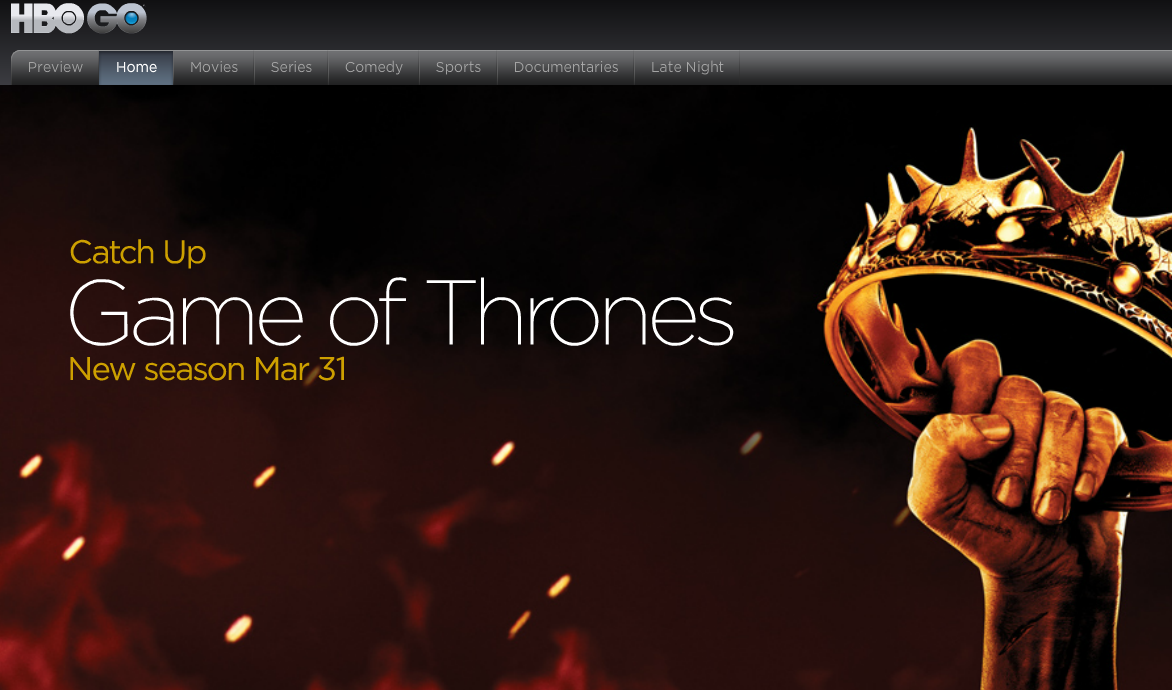Standalone HBO Go Inching Closer To Reality
 Millions of people love HBO Go. Unfortunately, lots of these people don’t want to pay for cable and Internet access and HBO just to get the service. But now it looks like the network is dipping its toe into the standalone waters, trying to figure out if there is a way to offer HBO Go without poking a stick at the cable companies it depends on.
Millions of people love HBO Go. Unfortunately, lots of these people don’t want to pay for cable and Internet access and HBO just to get the service. But now it looks like the network is dipping its toe into the standalone waters, trying to figure out if there is a way to offer HBO Go without poking a stick at the cable companies it depends on.
The big issue, as I pointed out back in June, is that while there may be a lot of people willing to shell out a monthly fee to just get HBO Go without having to pay the $100+/month for cable packages, HBO is still making a ton of money from its existing subscription customer base. Offering a standalone HBO GO could push many of them to ditch cable completely, meaning the Comcasts and Time Warner Cable of the worlds would see a drop in revenue.
Additionally, HBO would suddenly have to deal with all the billing and customer service that cable providers currently handle.
Now HBO CEO Richard Plepler says the company is now considering offering HBO Go as an add-on to Internet customers’ monthly packages. So, in theory at least, a customer could order Internet-only access from Comcast or Verizon FiOS and then tack on another $10 to $15 to get HBO Go through that same provider. This would keep the money flowing through the cable provider (since most of them are also the dominant broadband providers in their areas) and relieve HBO of having to deal with the cost and hassle of billing subscribers.
But don’t look for this to happen anytime soon.
“Right now we have the right model,” Plepler told Reuters. “Maybe HBO GO, with our broadband partners, could evolve.”
One huge stumbling block would still be the cord-cutting implications for a standalone HBO Go. While it might get some cord-cutters to pay more for Internet access, it will inevitably lead others to reduce or eliminate their cable package entirely. This could have a ripple effect that would harm HBO’s Time Warner Inc. siblings — CNN, HLN, TNT, TBS, among others — that rely on subscriber fees and ad revenue. More cord-cutting means fewer viewers, means fewer fees collected and lower ad rates.
“We would have to make the math work,” said Plepler.
Another issue would be DirecTV and Dish, both of which represent a large chunk of the paid-TV market, but neither of which offer a fixed broadband service of its own. So if a DirecTV customer drops HBO and pays his Internet provider a few bucks extra for HBO Go, there is no benefit whatsoever to DirecTV.
So while it seems inevitable that a standalone HBO Go will someday be made available, it’s going to take a lot of number-crunching and negotiating — plus definitive proof that there is a large enough audience to sustain the business — to make it a reality.
[via AVclub.com]
Want more consumer news? Visit our parent organization, Consumer Reports, for the latest on scams, recalls, and other consumer issues.

